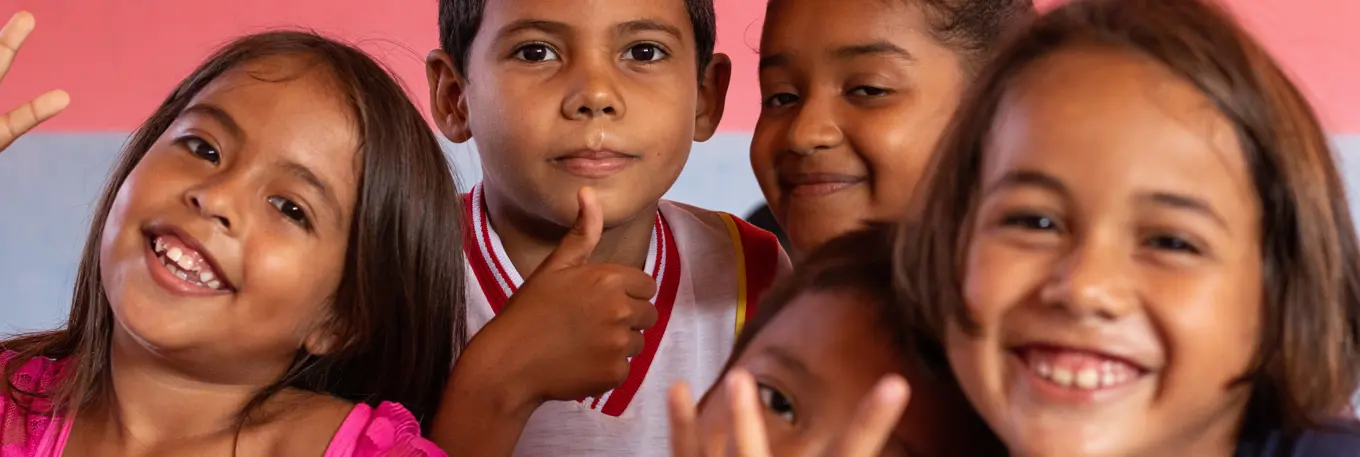Children in Displacement and on the Margins
Shifting educational systems to support children in adversity through Social and Emotional Learning.

Why it matters
We want to ensure that more children, especially those in extreme adversity, receive inclusive, high-quality education, helping them to reach their full potential.
There is clear evidence that Social and Emotional Learning (SEL) benefits all children. But it is particularly important for those living in adversity and experiencing trauma and fear. Without SEL, such children can struggle to develop academic skills.
SEL provides the nutrients for the seeds of human potential to grow and flourish. It empowers children to overcome challenges, promotes inclusivity, and equips them to actively engage in breaking cycles of adversity.
Children struggle to learn when they are disengaged, overlooked and disrespected. SEL empowers children to express themselves. It ensures that a child’s educational needs are adapted to their context, helping ensure as many children as possible stay in school and flourish.
What we do
We focus on systems responsible for delivering basic education to children facing adversity, in particular:
-
Children in Displacement: For children who are forcibly displaced we work on programmes supported by humanitarian organisations and/or national education systems.
-
Children on the Margins: For children who are out of school or at the highest risk of early dropout we work on programmes that directly engage with educational systems.
Where we focus
Our strategy focuses on the Global South, home to the largest populations of children facing adversity. We have selected eight countries for this work: Bangladesh, Brazil, Haiti, India, Jordan, Kenya, Lebanon and Peru.
We also work internationally to target global education systems. We hope that collaborating with international organisations to strengthen Social and Emotional Learning programming globally will amplify our impact.
By contributing to transforming education systems in eight key countries in the global south to sustainably implement more inclusive, quality education approaches, we hope millions of children will benefit.


